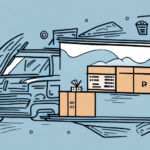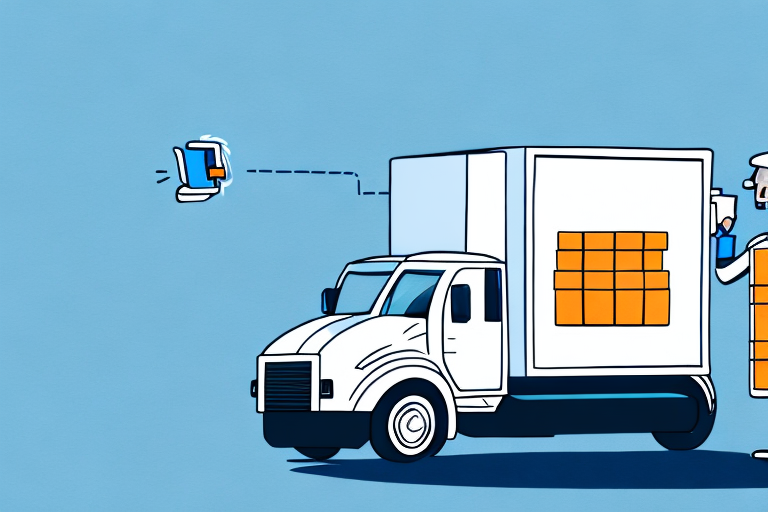Importance and Benefits of Proof of Delivery
In the logistics and transportation industry, ensuring that goods reach customers on time and in optimal condition is paramount. Proof of Delivery (POD) serves as a critical component in achieving this goal, providing evidence that shipments have been successfully delivered. This not only enhances customer trust but also contributes to the overall efficiency and reliability of supply chain operations.
Enhancing Customer Satisfaction
Accurate POD records ensure that customers receive their orders as expected, fostering trust and encouraging repeat business. According to a Forbes report, businesses that implement robust POD systems experience a significant increase in customer satisfaction and loyalty.
Reducing Disputes and Legal Risks
POD documents provide concrete evidence of delivery, which can prevent misunderstandings and mitigate legal disputes. In cases where discrepancies arise, having a reliable POD can expedite resolutions and protect a company's reputation. Research from the Supply Chain Quarterly highlights that companies with effective POD practices face fewer legal challenges related to deliveries.
Improving Operational Efficiency
Tracking and verifying deliveries through POD contribute to streamlined operations. Businesses can analyze POD data to identify bottlenecks, optimize delivery routes, and enhance overall logistics performance. A study by McKinsey & Company indicates that leveraging POD information can lead to a 15% improvement in delivery efficiency.
Types of Proof of Delivery Methods
There are various methods to capture and store POD information, each with its own advantages and challenges. Selecting the appropriate method depends on the nature of the business and its specific delivery requirements.
Traditional Paper-based Methods
Historically, paper-based POD records were the standard approach. While straightforward, this method is prone to errors, damage, and loss. Additionally, managing physical documents can be cumbersome and requires significant storage space.
Electronic Records and Digital Signatures
Modern businesses are increasingly adopting electronic POD solutions. These systems allow delivery personnel to capture signatures digitally using tablets or smartphones, enhancing accuracy and reducing the reliance on paper. Digital signatures are not only more secure but also facilitate real-time data updates and integration with other business systems.
Advanced Technologies: Barcodes and Blockchain
Advanced technologies like barcodes and blockchain are revolutionizing POD processes. Barcodes enable easy tracking and verification of packages at multiple checkpoints. Blockchain technology offers a tamper-proof ledger of delivery records, ensuring transparency and reducing the risk of fraud. According to IBM, blockchain can significantly enhance the security and reliability of POD systems.
The Role of Technology in Proof of Delivery
Technological advancements are continuously transforming how POD is managed, making the process more efficient and reliable.
GPS Tracking and Route Optimization
Integrating GPS tracking with POD systems provides real-time visibility into shipment locations and delivery statuses. Route optimization tools analyze traffic patterns and delivery schedules to ensure timely deliveries, reducing fuel costs and improving overall logistics performance.
Mobile Devices and Real-time Updates
Smartphones and tablets enable delivery drivers to capture accurate POD information on the go. Real-time updates allow businesses and customers to monitor delivery progress, receive instant notifications, and address any issues promptly.
Future Innovations: AI and Machine Learning
Artificial Intelligence (AI) and Machine Learning (ML) are poised to further enhance POD processes. These technologies can predict delivery times more accurately, identify potential delays, and automate routine tasks, thereby increasing efficiency. The Forrester Future of POD Report forecasts significant advancements in AI-driven POD solutions over the next five years.
Managing Proof of Delivery Records
Effective management and storage of POD records are essential for maintaining accurate delivery histories and ensuring data security.
Essential Information in POD Documents
A comprehensive POD document should include the receiver's name and signature, delivery date and time, shipment details (such as weight and item count), and any discrepancies noted during delivery. Additional information like the driver's name, carrier details, and sender's contact information is also important.
Best Practices for Record Management and Storage
Utilizing digital storage solutions ensures that POD records are organized, easily accessible, and securely stored. Cloud-based systems offer scalability and facilitate remote access, while incorporating robust security measures protects against unauthorized access and data breaches.
Choosing the Right POD Solution
Selecting the appropriate POD solution involves evaluating factors such as business size, budget, and specific operational needs. Solutions range from simple electronic forms to comprehensive software platforms that integrate with existing logistics systems. Assessing the level of customer support and the system’s scalability is also crucial for long-term success.
Overcoming Challenges in Proof of Delivery
Implementing an effective POD system comes with its own set of challenges. Addressing these issues is key to maximizing the benefits of POD.
Ensuring Accuracy and Completeness
Accurate data entry is critical for reliable POD records. Training delivery personnel on proper data capture techniques and utilizing automated systems can minimize errors and ensure completeness of information.
Preventing Loss or Damage of POD Records
Transitioning to digital POD records significantly reduces the risk of document loss or damage. Digital backups and secure storage solutions ensure that records remain intact and accessible when needed.
Ensuring Timeliness and Consistency
Implementing standardized procedures and leveraging technology for real-time updates help maintain consistent and timely POD records. Regular audits and process reviews can identify areas for improvement and ensure adherence to best practices.
Legal Implications of Proof of Delivery
POD documents play a crucial role in legal contexts, serving as evidence in disputes and compliance audits.
Using POD in Dispute Resolutions
In the event of a delivery dispute, POD provides tangible evidence that can clarify whether a shipment was delivered correctly and received by the intended party. This can expedite the resolution process and prevent protracted legal battles.
Compliance and Regulatory Considerations
Different industries have specific regulatory requirements regarding shipment documentation. Ensuring that POD records meet these standards is essential for legal compliance and avoiding penalties. Consulting with legal experts can help businesses navigate these regulations effectively.
Real-life Examples and Case Studies
Many companies have successfully leveraged POD to enhance their operations and customer service. For instance, a leading e-commerce retailer implemented an electronic POD system, reducing processing times by 30% and improving delivery accuracy. Another example is a pharmaceutical company that uses blockchain-based POD to ensure the integrity and traceability of its sensitive shipments.
Future Trends and Innovations in Proof of Delivery
The field of POD continues to evolve with emerging technologies and innovative practices shaping its future.
Blockchain and Enhanced Security
Blockchain technology offers a secure and immutable ledger for POD records, enhancing transparency and trust among stakeholders. This technology is expected to gain wider adoption as businesses seek more secure and reliable delivery verification methods.
Artificial Intelligence and Predictive Analytics
AI and predictive analytics will play a significant role in optimizing delivery routes, forecasting delivery times, and identifying potential issues before they occur. These advancements will lead to more efficient and reliable POD systems.
Integration with Internet of Things (IoT)
The integration of IoT devices in POD processes allows for real-time monitoring of shipments, including environmental conditions and location tracking. This ensures higher accuracy in delivery records and improves overall supply chain visibility.
As technology continues to advance, the importance of robust POD systems will only increase, driving further innovations and improvements in the logistics and transportation industry.






















